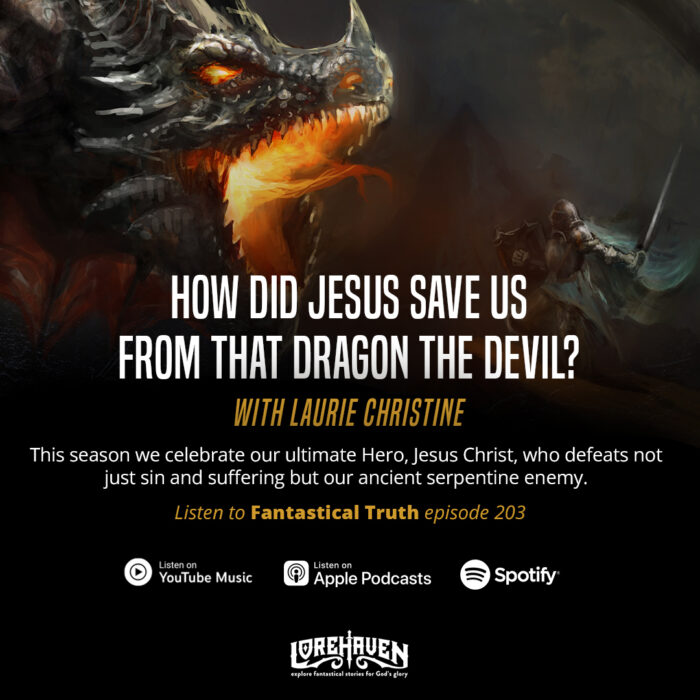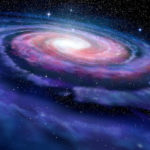Guest Post: Goodbye, Old Friend
Folks, the sad truth of today is that traditional science fiction—the space opera—is dying. For over 200 years, the imaginations of men like H.G. Wells, Frank Herbert, George Lucas, and Gene Roddenberry have been supplying us with hopes of alien races, light-sabers, faster-than-light travel, jet packs, and meals in pill-form. Some hopes have been realized, and we find ourselves operating handheld computers that are smaller that Star Trek tricorders and they’ve arrived about 250 years early. For the greatest part, however, we aren’t living in a technological utopia, and what devices we have invented aren’t taking us in the direction we were anticipating. We’re exploring microscopic organisms instead of some macrocosm and digging into the lives of our neighbors instead of boring tunnels through the center of the earth. On the other hand, we did happen to miss out on the predicted 1992 eugenics war between ourselves and our genetically enhanced cousins, so it isn’t all bad news.
If the terminology sticklers will grant me a bit of leeway, the term “space opera” is a mostly forgotten term that was used to describe those grand, planetary stories that gave very little importance to the hard physics of things like space travel and teleportation. The likes of Star Wars, Star Trek, Dune, and Battlestar Galactica are what are in view here. These storylines had their heyday from the dawn of the atomic age, until recently. While these big budget plotlines still make it to the screen, at some point in the last decade, people just stopped reading so much science fiction.
Most professionals with any vested interest in speculative fiction have attributed the decline of science fiction to the dawning distance between reality and the future that those stories promised. When the year 2000 came and went without so much as a jetpack, science fiction began to show signs of the sniffles. A decade later, the science fiction section is being swallowed by greater amounts of fantasy, alongside the paranormal romance novels which have finally been pulled out of the horror section, urban fantasy, and the growing collection of steampunk. Science fiction is taking its last breaths, while other genres are just learning to walk.
The hope for scientific, digital, genetic, electronic, and cybernetic innovation has been replaced in urban fantasy with magical means, and in steampunk, with the admittedly impossible mad scientist creations that kicked science fiction off in the first place.
In the end, it’s all about where we place our hope.
The early Christians saw a greater, grander version of the same thing we’re seeing now in 10-point Times New Roman. They read the same prophecies of Isaiah and Jeremiah that we read today. They mined those scriptures for every ounce of worth they could find. They established an immense and detailed eschatology (the study of end times) based on how they saw the words of David and Daniel being fulfilled. The Messiah was coming. He would be a King to end all Kings, a Lord to end all other Lordships. He would unify the Jewish nation and drop an iron fist on the Iron Empire. In a single stroke, he would set himself as the Ruler of the planet and her nations. Then the Jews would stand at his side as he looked over the horizon with golden flaming eyes.
They got a baby in a barn who grew up to train twelve guys and then he died.
I imagine as they watched this would-be King breathe his last breath, the Jewish disciples of Jesus were wondering where their jetpacks were, theologically speaking. They had been promised the stars and instead, were left with only a dry-rotting pair of sandals.
Oh, and a hole in the ground.
This grown-up barn-baby’s empty grave was a promise for something new, and the disappointed disciples went back to their roots. This Jesus hadn’t missed their expectations. Their expectations had been fictitious. And just as some of these new genres are finding many fans more ravenous and rabid than the space opera ever saw, Christ has promised that his second coming won’t be a step down from our original guesses. In fact, in the same manner that many steampunks are turning back to Wells, Verne and Poe, the disciples’ theological disappointment drove them, and us, back to reality and a less baggage-laden view of our Messiah.
Jeremy McNabb is a steampunk author, youth director, and speaker. His novel Joy & Carnage, and steampunk novellas, Gravesight and City Sidewalks are both available on the Amazon Kindle. New releases are announced on his Facebook page and Twitter account.






































An excellent write-up, Jeremy. And don’t worry — I won’t give up on space opera.
I’m with Steve…I don’t think we’ve seen the last of space opera, or most other sci-fi genres. The public appetite runs in cycles. We get a glut of science fiction, then a lull, then another glut. Nostalgia brings back old forms and the next generation discovers what their parents were so excited about.
There are some encouraging signs. John Carter is coming to the big screen in March, and even if it tanks, we still have Ray Gun Revival. 🙂
And as Jeremy observes, demolishing our expectations isn’t always a bad thing. There’s a lot of space exploration going on right now, even if most of it is unmanned…who knows what new flavors of science fiction emerging discoveries may inspire?
And that, ladies and gentlemen, was the first time someone compared our disappointment with the real world’s future to live up to sci-fi’s expectations and projections, with much of Israel’s disappointment with its real world’s failure to live up to what they thought were their own prophecies’ expectations and projections.
(Applause for thee, Jeremy.)
Oddly enough, both sets of expectations have not been rendered impossible.
They’re only delayed.
Delayed until one single event that will usher in both of them: the age of a clearly victorious, smash-all-His-enemies Messiah, ruling on Earth, and the age of what will surely be fantastic and advanced wonders and technologies about which we’ve only just begun to start dreaming.
In both cases, we’ve sought them too soon. First God needed to deal with the sin problem. Spiritual resurrection must precede physical resurrection, and the defeat of death itself (which, I’ve heard it said, is the last enemy to be destroyed).
As for the faltering influence of science fiction/space opera, I would also attribute that to the fact that where science has caught up with projections by Star Trek and such, it’s also caught up enough to disprove sci-fi possibilities in the real world. Mars is a prime example. Once it was an unknown world, home to all manner of imagined civilizations, canals, and wonders. Now, probes have proven it may hardly be home even to microscopic life — or even remnants of said microscopic life.
But does that make Mars any less amazing? … Some may say yes. I disagree.
Maybe we may not be able to include more-direct explanations in our stories about how things work. Maybe our fictitious spaceships can’t simply hop using rockets for journeys lasting only days and weeks to the nearest star system, not after we’ve learned that those systems are millions of lightyears away, and that inhabitable planets are much rarer than we assumed. Maybe “hard science fiction” has perished, inevitably, not because it’s out-of-date but because it’s been either fulfilled or disproved.
But “space opera,” which can be “hard science fiction” just without all the “hard science” explanations and with more gaps, can survive.
Fred pointed out that it’s already coming back, in the form of the attempting John Carter movie that presents an alternate-history (pre-probe disprovals) version of Mars, with fantasy creatures, civilizations, canals, a sort of space steampunk, I think.
I would also add that Star Trek is still coming back. Its basis is partway between “hard science fiction” and “space opera,” explaining some things, like warp drive, but still having some “magic” like incorporeal aliens with vast powers, or “Heisenberg compensators” in the transporters. People still love it. That proved even more true with the 2009 reboot, and will likely be re-proven with that film’s sequel. And just yesterday, I was viewing, and geeking out, over this video. Star Trek: The Next Generation is still loved, and in some ways is more conceivable than the original series.
My speculative fiction attempts began, not with fantasy, but with science fiction. This was years before I even began getting into Star Trek (yes, I’m a late-comer, and I began with The Next Generation, and haven’t even yet seen more than three TOS episodes!). So this topic is very personal to me. Even yesterday, before I saw this column, I was thinking, You know, we need to talk more about sci-fi on Speculative Faith …
Some years ago, before the Star Trek reboot, I wrote a three-part series about the franchise’s echoes of Christianity, and its (usually unsuccessful) sporadic attempts to subvert Christian morality. So I may need to polish off and “reboot” that series … and create spinoffs. Any other Spec-Faith writer who’s also a Trekkie is welcome to join in!
Actually a cinematic portrayal of the first of Edgar Rice Burroughs’ classic Mars stories, written about 100 years ago and set shortly after the American Civil War. Speculative fiction for its time, and part of the Jules Verne/H.G. Wells school of storytelling Jeremy referenced, definitely with the broad sweep of events and focus on story and characters vs. scientific detail that characterizes space opera.
The original, A Princess of Mars, is available to read free at Project Gutenberg, linked here.
How Disney will handle this remains to be seen, but it’s encouraging that Pixar has the lead.
Well, see, space opera hasn’t died. It’s only shifted genres.
Space opera is alive and well in the videogame arena. The Halo series is one vast space opera, dealing with supersoldiers, alien alliances, and a series of vast rings that are actually planets, home to an alien parasite that transforms living beings into zombies. (The books are great.)
Then there’s the Half Life series (dealing with what happens when aliens invade and take over) and the Portal series (a puzzle game with an advanced AI who gently, passively tries to kill you. With great quotes. “You will be baked. And then there will be cake.”)
I haven’t read Dune yet, but I want to sometime soon…
Thanks for all the different angles. I’m not a gamer or a huge movie buff (anymore). I’m excited to see what comes in the future. I think we’ll probably start seeing a whole lot more shows that tip their hat to Serenity.
Fred, I only recently found out about Edgar Rice Burroughs when my in-laws sent me searching for the first book in the Mars series. I forget the name now. But it’s one I want to look into.
Quality article, Jeremy! Thanks for sharing. I also believe the space opera is dying in both book, movie and TV series form. These things are cyclical though. I generally prefer my sci-fi to be high concept but grounded in our reality (the TV series “Fringe” for example, and to a lesser extent, LOST). That’s not to say other sci-fi is unimportant or not popular but there are fluctuations of interest in the public and for now it seems this form of sci-fi is the one having it’s time in the sun. Either way, it beats all of the medical and crime dramas. Some of them can be good but they tend to over-saturate the market.
Folks, space opera is alive and well. The latest Star Trek is well and truly space opera, and Firefly’s Browncoats are as rapid as ever (did you see that Netflix may take a run at funding a new run?!).
Also, as Fred pointed out (thanks Fred!), Ray Gun Revival magazine has been running a free space opera magazine online since 2006, and our authors are getting better and our readership is on the upswing.
Do you have sources for this Firefly info?
Of course! (Nathan Fillion says ‘Hmmm.’)
http://geek-news.mtv.com/2011/12/15/will-netflix-bring-back-joss-whedons-firefly-nathan-fillion-says-hmmm/
Edgar Rice Burroughs’ Mars series is stellar and I am still amazed I didn’t read it until only a few years ago. Hopefully the movie brings it back into the public’s eye and does it justice. Though why the movie title makes no mention of the first book (Princess of Mars) is a bit odd. Maybe hedging their bets to see how the film does before commiting to more films.
Another sci-fi author people should revisit is Ray Bradbury. More a writer of short stories, or collections of them like The Martian Chronicles, they are classics.
DD: It’s a result of Disney’s new “princess” shyness — that is, not about movies featuring princesses, but of movies whose titles have feminine connotations.
Examples: The Princess and the Frog vs. Tangled and the Pixar-produced Brave.
Apparently guys run in fear from any movie whose title contains a princess. However, I can understand this a little. And (I am afraid this could be very unpopular) it would seem that more women enjoy films with mainly heroic males, then men enjoy films with mainly heroic females.
Previous Disney females were largely passive and and the princes were…not much better, really. Tiana and Rapunzel follow more of the Belle and Jasmine type rather than Auroa, Cinderella, Sleeping Beauty, or Snow White. (You could go back and forth with Ariel and Eric. ) Prince Philip at least has personality and -gasp- a name. Beast and Aladdin are both 3D characters with personalities.
But I’m a girl who never got into the princess thing, so….